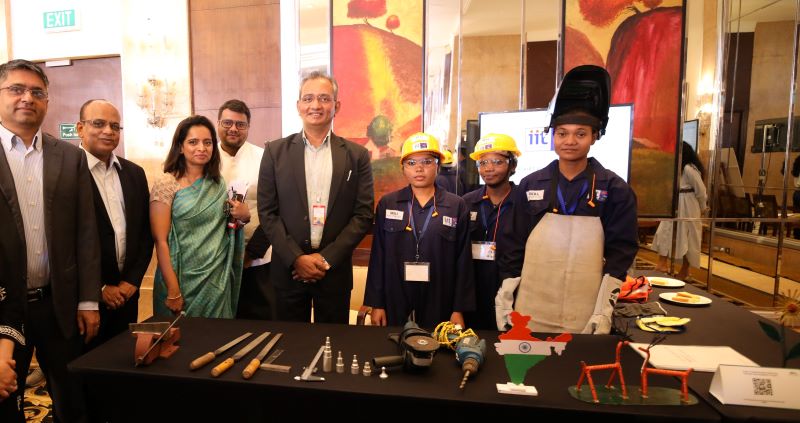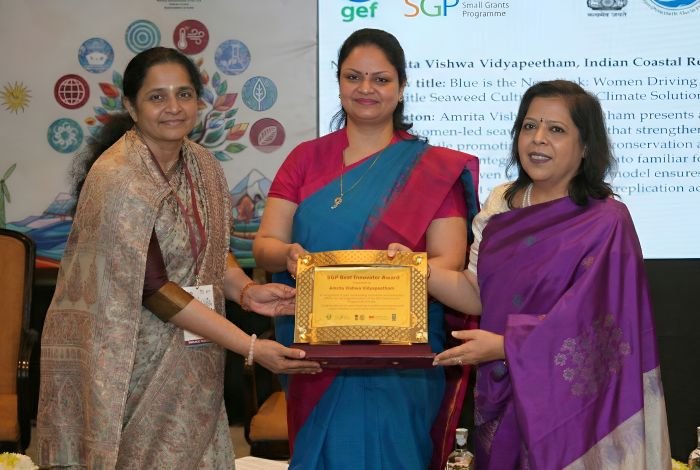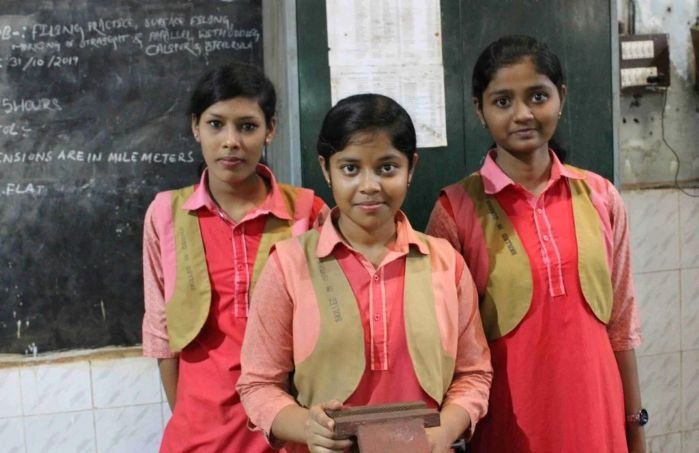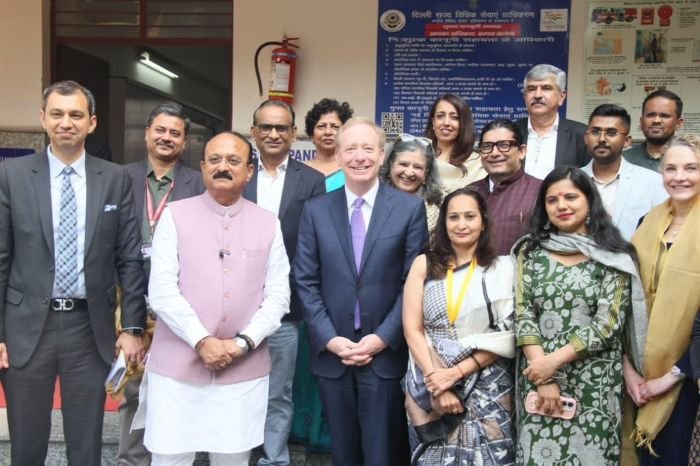
Launched in 2021, the USD 14.4 million Skill Impact Bond is well on its way to achieving its bold targets of skilling 50,000 young Indians, 60% of whom will be women, and help them secure and retain jobs. Till date, the Skill Impact Bond has successfully supported close to 18,000 first-time job seekers from low-income families, of whom 72% are women from 18 states and union territories. Skill Impact Bond is a financial innovation helping young people build core skills and competencies required to successfully enter and grow within the workforce.
The impact bond is strategically designed to link fund flows to outcomes such as certification, job placement and retention, moving beyond a focus on enrolment alone. This focus on outcomes, rather than inputs and outputs, aligns incentives for all those involved and enables all partners to work together towards a shared goal. Alongside the high female enrolment rates, the first cohort of Skill Impact Bond indicates a promising retention rate, where 1 in 2 women who have enrolled in the training have continued to work in wage employment for three months.
Pioneered by the National Skill Development Corporation (NSDC) – a one-of-a-kind public private partnership model in India under the aegis of the Ministry of Skill Development and Entrepreneurship – and a coalition of mission-aligned partners, the Skill Impact Bond is aimed at transforming the way skill training programmes are implemented, with a focus on bridging the gap between skilling and employment, especially for women. Alongside the NSDC, the coalition draws strength from a set of funders and partners who have deep experience with innovative finance, skilling, gender, monitoring and evaluation, and data-driven decision-making – the British Asian Trust, the Michael & Susan Dell Foundation, The Children’s Investment Fund Foundation (CIFF), HSBC India, JSW Foundation and Dubai Cares, FCDO (UK Government), the United States Agency for International Development (USAID), Dalberg Advisors, and Oxford Policy Management. The skill training is delivered on-ground by Gram Tarang Employability Training Services Pvt Ltd, Learnet Skills Ltd, Magic Bus India Foundation, PanIIT Alumni Reach For India Foundation, and Tata STRIVE, each partner selected for their capacity to innovate, scale, and reach diverse target groups.
Even though India has seen tremendous effort and investment being channelled into improving employment opportunities from both the private and public sector, employment rates – particularly for women – remain low. The country’s female labour force participation rate (FLPR) has been consistently low at around 30% and research has found that only 10 out of 100 women enrolled in skilling programmes continue to stay in jobs for three months. Recognising this, the NSDC and a coalition of partners launched the four-year Skill Impact Bond in 2021 as India’s first development impact bond to drive an outcomes-based approach to focus on job placement and retention.
Applauding the efforts under the Skill Impact Bond, Atul Kumar Tiwari, Secretary, Ministry of Skill Development and Entrepreneurship said, “Skill Impact Bond has demonstrated its effectiveness in fostering collaboration between governments, private sector entities, and civil society organisations. And by leveraging such innovative financing mechanisms, we are not only increasing the availability of resources but also ensuring their efficient allocation to tackle the persistent challenges of skill gap and unemployment. The initiative has been successful as it operates on the principle of outcome-based funding and, I must say that the results achieved till now look encouraging. National Skill Development Corporation is keen to promote good practices and knowledge exchange to catalyse further innovation in the skilling ecosystem.”
The coalition will attempt to drive up retention with every cohort, and speaking on the progress, Sangita Jindal, Chairperson, JSW Foundation said, “Our vision is to empower communities with sustainable livelihoods and recognise the crucial role of today’s youth in shaping the future. Through the Skill Impact Bond, we leverage our expertise in skilling to ensure lasting impact for India. Applying an outcomes-based approach to our funding drives social transformation, moving beyond outputs. With each cohort, the focus on outcomes inspires the skilling and employment sectors nationwide.”
Early evidence from the impact bond’s first few cohorts shows that higher retention of women in the workforce could be linked to training partners being able to address deeply entrenched socio-cultural barriers that typically prevent women from seeking and staying in jobs. This has been done by establishing contextualised selection and counselling processes, not just with the candidate but also with parents, and tackling invisible issues such as poor health and nutrition. Similarly, the training partners have designed fit-for-purpose delivery methods and curricula, which are aligned to the needs of employers and aspirations of young women. Lastly, post-placement tracking and guidance such as regular check-ins with candidates and migratory assistance are imperative to women feeling comfortable taking jobs, adapting to new environments and challenges and reducing dropouts.
Beyond the innovative financial design that drives the Skill Impact Bond, the coalition has prioritised use of performance management, technology, data-driven decisions, and tight monitoring and evaluation to ensure that the impact bond is robust, rigorous, and builds a strong evidence base. This also aids its longer-term goals – to create a paradigm shift within the skilling and employment ecosystems from their current state to an aspirational state where focus is centred around gainful employment, retention in the workforce and overall well-being.








